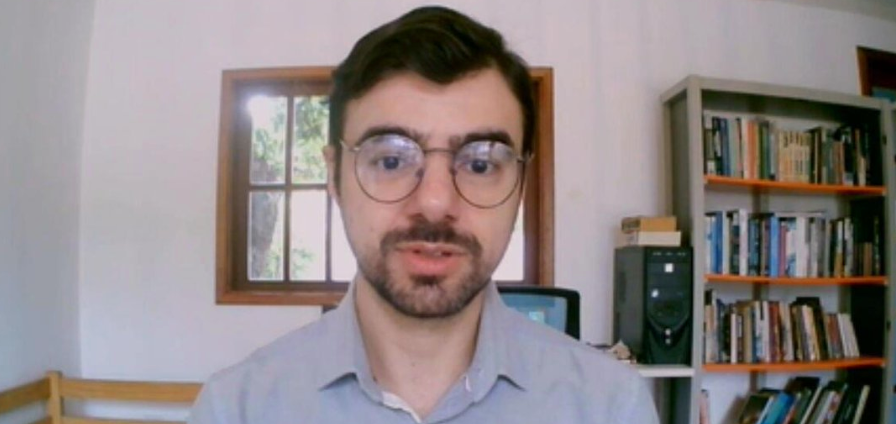“What is up to us at this moment, when we are not a government and have no knowledge of the composition of Congress, is to announce the principles that will guide our proposal”, he states. Mello only adds that the fiscal rule would have to make fiscal sustainability, recovery of public investment and increase in social spending compatible.
ADVERTISING
The economist also leaves it open what Petrobras' pricing policy would be. “Our objective is to create instruments to manage prices. Instruments that are capable of minimizing these (price) fluctuations. This obviously has to be constructed in a dialogue with Petrobras, with governors.” Among the options, he adds, one would be to create a stabilization fund. Mello, however, highlights that this possibility would not necessarily be the “favorite”.
Regarding BNDES, the economist states that it would be used to finance small companies and investments that favor the energy transition. Regarding the tax system, he highlighted that there would be no increase in the burden, just changes in taxes and rates to ensure greater progressivity, that is, reducing the burden paid by the poorest and increasing that of the richest.
The interview with the PT's economic advisor ends the series carried out by Estadão with the economists of the presidential candidates. Jair Bolsonaro's campaign did not nominate anyone to participate.
ADVERTISING
Below are excerpts from the interview with Guilherme Mello.
If Lula wins the elections, the PT will take over in a difficult year for the economy, with a global slowdown, high interest rates and the impact of electoral measures adopted this year. What is the plan to deal with this scenario?
At the same time that this scenario is outlined, we see an opportunity for Brazil not in 2023, but in the coming years. Brazil has remained on the margins of nations not only from a diplomatic point of view, but also on topics that define the future, such as sustainability. These themes have the potential to attract investment. There are investors who want to come to Brazil, but do not come due to political and institutional uncertainties. We believe that there is a prospect for the Brazilian economy if the next government is able to regain credibility, transparency and dialogue with different sectors of society and different countries. If you have a person with President Lula's experience, a vice president with Geraldo Alckmin's experience, the recovery of credibility can even occur quickly with immediate actions.
What actions would these be? Credibility is one of the points that economists in the market and the productive sector demand from the PT, so that it can point out a trajectory. The PT said it will not give details at first. These uncertainties mean that projections for 2023 are very different. How do you intend to activate this credibility?
ADVERTISING
Why is there this disparity in the prospects for 2023? The current government has ended any type of transparency and credibility in public sector accounts. We don't know what to expect not only from a fiscal point of view, but from various angles: social and institutional measures, relations with governors, with the STF (Supreme Federal Court) and with democracy. This creates uncertainty.
But how to regain credibility? In the fiscal area, for example, the program talks about revoking the spending cap. What would be put in its place?
First of all, you need to do what you say you are going to do. We are announcing that we will revoke the spending ceiling and create, in its place, in dialogue with Congress and society, a new fiscal framework. What is up to us at this time, when we are not a government and have no knowledge of the composition of Congress, is to announce the principles that will guide our proposal for a new fiscal framework.
ADVERTISING
Is there no way to say what this new framework would be like?
If I came here and said 'this is what the new framework will be', it would be a first step towards a lack of credibility, because I would be announcing something that I don't know if I will be able to fulfill. What can be said is that a possible new framework, which will be discussed in Congress, will have metrics that make fiscal sustainability compatible with the need to expand social and infrastructure investments.
Investment would be left out of the ceiling?
You are thinking from the point of view that it will be a spending rule. It won't necessarily be that. Whether it will be a new spending rule, a result rule or a combination of rules will depend on the negotiation process with Congress.
Policies, to a large extent, depend on negotiation with Congress. But, in previous elections, you gave more concrete indications of what would be adopted.
ADVERTISING
We have concrete policy definitions. We present Desenrola (family debt renegotiation program), a concrete policy. We also present the discussion of the new Bolsa Família. I understand that sectors, mainly the financial market and part of the press, want concreteness about the fiscal rule. The problem is that this discussion does not depend exclusively on the Executive. What we are putting in place today, in a concrete way, are the guiding principles of a new framework: being flexible, adapting to moments of crisis. Be countercyclical, that is, that, in a moment of great growth, it does not overheat the economy and, in a moment of falling growth, it does not push the economy further down. Have mechanisms for monitoring the impacts of public spending. Our objective is to make fiscal sustainability compatible, that is, to stabilize the debt/GDP ratio over time, while recovering public investment and good quality social spending.
If Lula is elected, how will you handle the adjustment of public servants' salaries?
There are careers that have had salaries frozen since 2017. During this period, there were years of very high inflation. The negotiation process will involve a dialogue table. What we can guarantee is that the form of negotiation will be very different from that of this government and that the attitude towards public servants will be one of appreciation.
In the government program, you claim to oppose the privatization of Eletrobras. Would a possible Lula government carry out renationalization?
Petrobras and Eletrobras will have a strategic role in the ecological and energy transition. The federal government, despite having lost majority control of Eletrobras, is still a relevant shareholder in the company. For us, the fundamental issue is to have different instruments to promote the transitions that Brazil needs. Some of them are purely public companies. Others are mixed companies. Each one has a function and can play a role. The important thing for Brazil is not whether the government will have a 51% or 49% stake, but that all companies, especially those with a relevant stake in the public sector, are profitable and have investment capacity. They also need to dialogue with the future-bearing transition process. If Petrobras does not quickly become an energy company that dialogues with sustainability and renewable fuels, it will increasingly become a company of the past.
In the case of Petrobras, former president Lula said that former president Dilma made a mistake with her pricing policy. But the PT program says that “it is necessary to Brazilianize fuel prices” What would be done?
I also think that there was an exaggeration in former president Dilma's policies. What we are talking about is recovering instruments and management capacity in the public sector to be resistant to external shocks. This does not mean freezing prices. A country like Brazil, which has Petrobras, which has oil, which refines part of the fuels, has multiple instruments to use. The fact that we did not use these instruments made Brazil one of the countries most susceptible to price shocks and which had one of the highest inflations in the world. Our goal is to create instruments to manage prices. For example, in the case of fuels, which are not unsustainable, which are not transitory – as is the case now with tax exemptions. That they are instruments capable of minimizing these fluctuations whenever they occur. This obviously has to be constructed in a dialogue with Petrobras, with governors. There are a number of options on the radar.
For example?
One option, I'm not saying it's the preferred option, but one that was proposed by PT senators is the creation of a price stabilization fund. How this background will be designed, there are also several possibilities.
If former president Lula is elected, he will have to deal with Roberto Campos Neto, who was appointed president of the Central Bank by the Bolsonaro government and who is pursuing a tough interest rate policy. How do you evaluate this policy and how to work with it if you do not intend to change the BC’s independence?
I am convinced that there are all the conditions for positive coexistence, because what we are talking about is discussing how the federal government can contribute to the BC to achieve its objectives. The objectives are the inflation target and achieving it with as many jobs as possible. We think that the government gave up a series of instruments that could collaborate. It creates instability and uncertainty, which makes it difficult to manage exchange rates, interest rates and inflation. President Lula is very clear about the impact of famine on people's lives. So he is very clear about the need to control the inflationary process.
But the BC president thinks differently than you.
I do not think so. It aims to stabilize inflation. If he has this as his objective, every contribution the government can make to avoid generating institutional or political instability matters.
Do you see a need to increase the tax burden to finance increased investments?
Our tax reform proposal does not foresee an increase in the burden. It predicts that, at the end of the process, the country would have a tax burden equal to or very close to the current one, but with a different tax composition. In the Lula governments, you had an increase in revenue without an increase in tax rates. He did this by promoting the resumption of economic growth, the formalization of workers and with efficiency gains in revenue management and taxation.
In the government program, you talk about strengthening public banks, but you don't detail what the BNDES' strategy and function would be. Would he return to a role similar to that of other PT governments, with some policy of national champions?
BNDES is a powerful instrument in promoting economic development. He must act in sectors where the private system does not do so adequately. An example is micro and small companies. Unlike large companies, small companies do not have access to the capital market. If they are not financed by the banking system, in particular by BNDES, which offers credit under reasonable conditions, they will run out of credit and enter a crisis spiral. We have also been talking about the BNDES acting with sovereign guarantees to enable investments in infrastructure and to finance ecological, energy and digital transitions.
How do you see the support for Lula given by Henrique Meirelles, who has a different economic analysis than that described in the PT government plan?
The political support of Meirelles, a former presidential candidate, is welcome and signals the breadth of President Lula's candidacy. At the table (at the event in which Meirelles announced his support), were Marina Silva, Guilherme Boulos, Luciana Genro and other figures from different parties, which shows the strength of the political movement led by President Lula. It was a relevant political event that, as (Aloizio) Mercadante said, unites the divergent to fight the antagonistic. Each of these characters has different opinions on public policy in general and economic policy in particular.
Meirelles stated that Lula is being poorly advised in relation to the spending ceiling. How do you respond to this criticism?
I find this irrelevant. What is relevant is the fact that he declared his support. It was unconditional support. Regardless of the opinion on one point or another that may differ, Meirelles had an attitude of greatness and of supporting the candidate who he believes is most capable of recovering Brazil. I think this is the meaning of the event, of support. There will be differences, but the fight against what the current government represents is something that unifies Democrats.
(Luciana Dyniewicz and Adriana Fernandes, Estadão Conteúdo)





